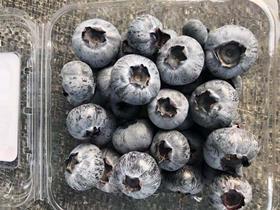
Oliver Davies has undertaken a project to grow counter-seasonal blueberries in a humid and subtropical region of China’s Yunnan province. After relocating to Shanghai in 2013 to build S&A’s Asia Pacific arm, the director of operations saw an opportunity for the region to produce berries in China’s off-season.
“We can deliver our berries direct to consumers’ homes in less than 48 hours. This is a key point of difference compared with imported berries that take over 30 days from harvesting to arrive in China,” he said.
This (counter) season, S&A will launch its first domestically-grown berries to consumers across China, with production peaking just before Chinese New Year.
“We will be doing online promotions for our products as we believe we are producing something unique which is the perfect gift-giving item for Chinese New Year,” noted Davies.
S&A is careful to brand berries under a separate, exclusive brand name for the first season, to ensure customers are pleased with the supply. Following reviews, and provided consumers are satisfied, berries will then be branded and sold under the S&A label.
The offering will initially be sold online and also through fruit shops/retailers, with a small amount heading to wholesale markets.
“For S&A, it is critical we have the highest standards, from picking right through to delivery. As this is our first season, we are working with our current partners that we have long-term relationships with,” said Davies. “S&A currently has many sales channels in China, and all of our customers are demanding off-season blueberries from our Yunnan farm.”
The standard format will be 125g clamshells, but Davies says he’s also supplying 250g punnets to retailers and fruit shops, as well as snacking pots in the same size.
It’s been a long journey from laying out the initial plan four years ago, to preparing the first commercial volumes. “In the future I believe China will be one of the largest markets in the world for blueberries,” he said.
“Over the last ten years, China has transitioned from growing very few blueberries, to being the largest grower in the world in terms of hectares planted. The Chinese government has promoted this industry, which has been key to the growth.
“Consumption per capita is still very low compared with Europe, but as consumers learn more about blueberries and their health benefits, we are seeing it rise.”
This article originally appeared in the December/January edition of Asiafruit Magazine



